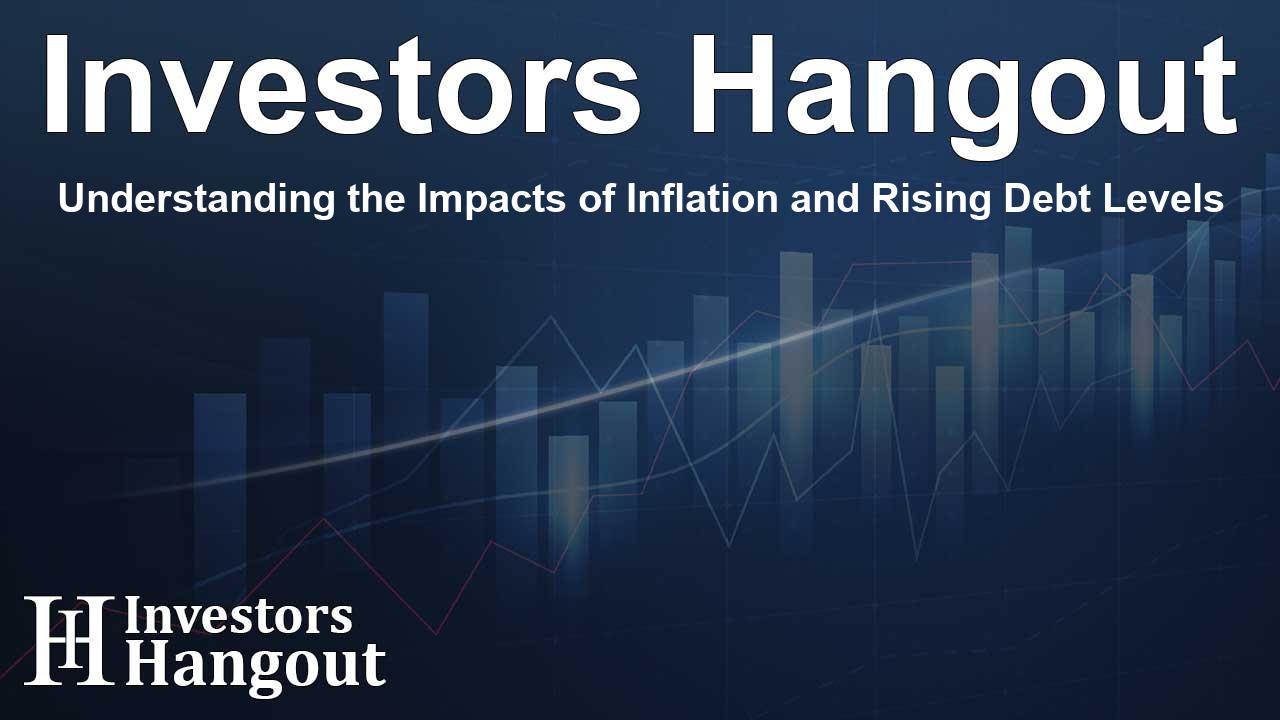Understanding the Impacts of Inflation and Rising Debt Levels

Insights on Inflation and Market Dynamics
Let's delve deeper into the crucial role of market liquidity, a cornerstone of economic stability and money management. Liquidity serves as the foundation of Pento Portfolio Strategies’ Inflation Deflation and Economic Cycle (IDEC) model. It significantly influences the inflation and deflation dynamics, directly affecting prices in stocks, bonds, currencies, and commodities.
Key Factors Influencing Market Liquidity
The primary variables that impact liquidity encompass bank lending practices, real interest rates, national debt levels, credit spreads, and financial conditions. Each element contributes to the overall stability of the economy. The IDEC strategy is adept at illustrating how these components interplay to affect market dynamics.
The Importance of Liquidity in Financial Systems
Liquidity is vital for the optimal functioning of money markets, facilitating the trading of short-term debts such as commercial paper and loans. It acts as the underlying framework supporting the entire financial ecosystem — from shadow banks to commercial banks. A shortage of liquidity can lead to significant economic disruptions, resulting in recessions and other forms of economic downturn. In contrast, excessive liquidity can spur inflationary pressures.
Understanding the Nature of Inflation
There's an ongoing debate surrounding inflation and its origins. Central banks often struggle to accurately gauge inflation causes, mistakenly linking it to prosperity or high employment rates. The reality is more complex; supply shocks produce symptoms rather than root causes of inflation.
Loss of Confidence in Fiat Currency
Inflation fundamentally arises when the market loses faith in the purchasing power of fiat currency, primarily due to irresponsible governmental and central bank actions. Misinterpretations abound, especially among prominent financial figures who cling to outdated theories like the Philips Curve, which inaccurately connects inflation to employment levels.
Effects of Quantitative Easing and Low Interest Rates
Some asset managers believe that Quantitative Easing (QE) and Zero Interest Rate Policies (ZIRP) do not inherently lead to inflation. However, this perspective neglects the reality that these policies can result in higher prices for assets, thereby creating asset bubbles. QE facilitates the generation of high-powered money, injecting liquidity into banks and encouraging purchasing of financial instruments like Treasuries, leading to inflated asset prices.
The Role of Government Spending and Credit Expansion
When governments engage in extensive deficit spending, it often causes banks to utilize their reserves to fund these expenses, amplifying the money supply. Given the inefficiency of government capital distribution, this typically inflates consumption rather than fostering productive investments, substantially affecting the consumer price index (CPI).
The Current State of Inflation and Debt
Currently, inflation continues to devastate the purchasing power of the middle class and lower-income brackets. Rising interest rates compound these challenges, presenting a formidable issue for financial markets. The U.S. faces a record-high debt level, totaling $37 trillion, along with escalating annual debt service payments exceeding $1 trillion.
Global Financial Implications
This scenario unfolds as central banks strive to lower rates. Simultaneously, the long-term rates are on an upward trajectory — revealing potential loss of control over the yield curve. The bond vigilantes are increasingly attentive to inflation and insolvency issues, remaining wary as inflation undermines living standards.
The Future of Government Debt and Economic Policy
Governments historically resorted to borrowing and printing money to mitigate economic problems. However, with skyrocketing debt levels already stifling growth and persistent inflation concerns, their power to stabilize yields diminishes. Any further deficit spending risks exacerbating inflation issues, leading to higher borrowing costs.
Investment Strategies in Challenging Times
As both bond and stock markets exist in a bubble, traditional investment strategies may falter. Employing a model that capitalizes on the inherent volatility of economic cycles can help safeguard retirement savings, ensuring financial stability in unpredictable economic landscapes.
Frequently Asked Questions
What role does liquidity play in inflation management?
Liquidity is crucial for the proper functioning of financial markets, influencing inflation and economic growth.
How do government debts affect the economy?
High government debt levels can lead to increased borrowing costs and economic instability, impacting inflation rates.
What is the connection between interest rates and inflation?
Rising interest rates can stem from inflation concerns, affecting borrowers and overall economic conditions.
Can Quantitative Easing lead to inflation?
Yes, QE can inflate asset prices and contribute to inflation if not managed properly.
How should investors approach a volatile market?
Investors should adapt strategies that account for economic cycles, focusing on risk management.
About The Author
Contact Caleb Price privately here. Or send an email with ATTN: Caleb Price as the subject to contact@investorshangout.com.
About Investors Hangout
Investors Hangout is a leading online stock forum for financial discussion and learning, offering a wide range of free tools and resources. It draws in traders of all levels, who exchange market knowledge, investigate trading tactics, and keep an eye on industry developments in real time. Featuring financial articles, stock message boards, quotes, charts, company profiles, and live news updates. Through cooperative learning and a wealth of informational resources, it helps users from novices creating their first portfolios to experts honing their techniques. Join Investors Hangout today: https://investorshangout.com/
The content of this article is based on factual, publicly available information and does not represent legal, financial, or investment advice. Investors Hangout does not offer financial advice, and the author is not a licensed financial advisor. Consult a qualified advisor before making any financial or investment decisions based on this article. This article should not be considered advice to purchase, sell, or hold any securities or other investments. If any of the material provided here is inaccurate, please contact us for corrections.
